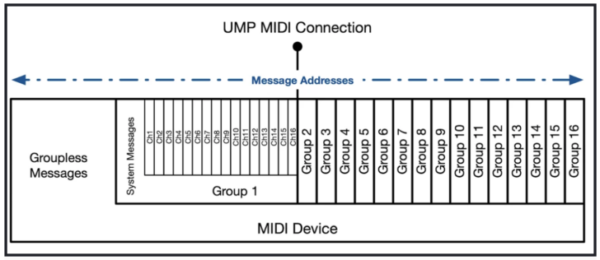Updated MIDI 2.0 Specifications have been published.

Are you are looking for some light reading? Over 350 pages of new MIDI 2.0 specifications have just been published. The documents detail an updated core spec and a brand-new spec for the MIDI 2.0 SMF Clip File.
After three years of intensive prototyping and many virtual and face to face meetings, The Association of Musical Electronics Industry (AMEI) and The MIDI Association have published 4 significantly updated MIDI 2.0 core specifications and a brand new specification for the MIDI 2.0 SMF Clip File.
It might not mean a lot to most of us, but the MIDI Association says that these new specifications are the result of many years of volunteer work by its own members and those of the AMEI, and consist of over 350 pages of detailed specifications.

These core specifications define the architectural foundations for MIDI 2.0 and define minimum requirements for devices to claim MIDI 2.0 compatibility and to apply to use the MIDI Association’s MIDI 2.0 logo.
Anyone who is interested can download the documents for free from the MIDI Association website. There are also plans to open a MIDI Association Github and fill it with tools and source code that will be available under a permissive MIT licence to all developers.
AMEI and The MIDI Association have provided the specifications for free download, but you have to register first:
- Detailed information about MIDI 2.0 is on The MIDI Association website.
- All MIDI specifications are available for download.
As many of you know, MIDI 2.0 has been in the works for several years now, and the latest developments follows public demos of MIDI 2.0 were shown off at the recent April 2023 NAMM show:
- Roland and Synthogy teamed up to demonstrate MIDI 2.0 High Resolution Velocity using an Apple computer and the publicly available version of Logic.
- There were working prototypes of both Microsoft and Linux MIDI 2.0 drivers.
- And Korg, Bome Box and Analog Devices were all showing prototype products that implemented MIDI 2.0.
For more detailed explanations about the updated MIDI spec, see the article “What Musicians and Artists need to know about MIDI 2.0,” on the MIDI Association website.

























